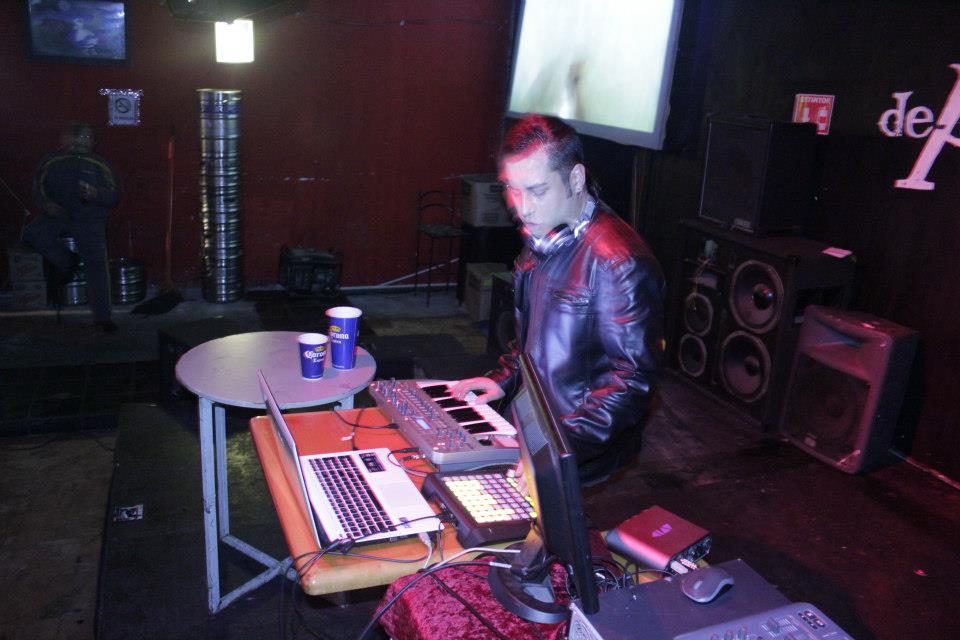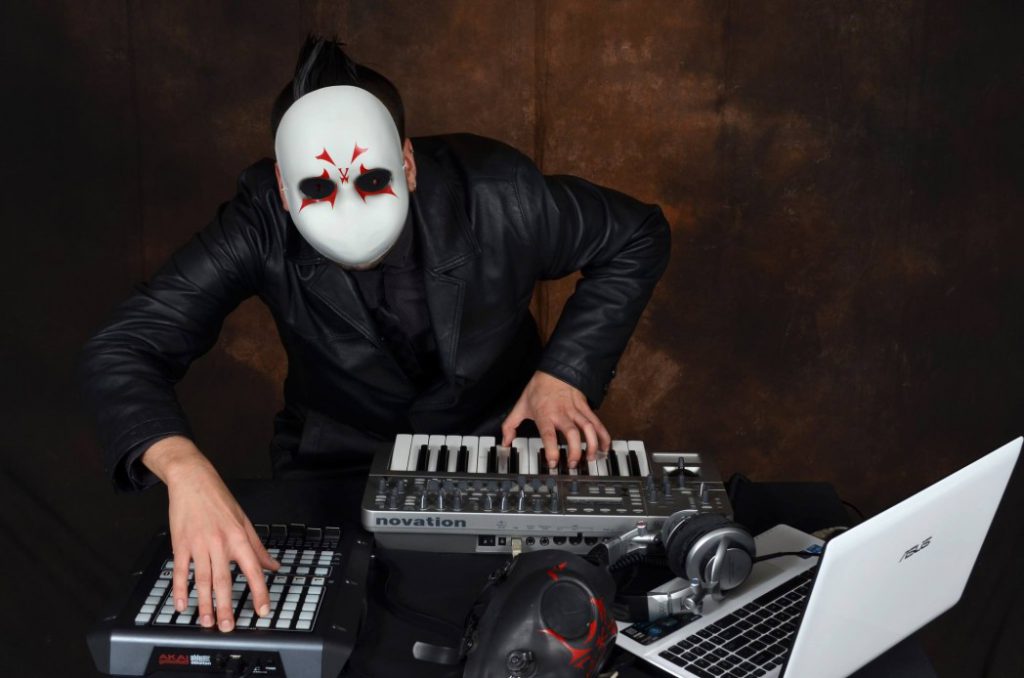This time we interview Fako (real name: Fabián Morelos Aldana), the man behind Exemia, project from Tijuana.
Since 2003 he experimented with different types of industrial music and recently published excellent album “Cryptobiosis”, which was reviewed on our site (give this album a try – it will blow you away!). Fako gave us really extensive interview, but fortunately it’s as interesting as it’s long!
[halobox116]
Adalbert: Firstly I want to ask you about the beginnings of the band, since not many people know its history. Why did you started to create music?
Fako: Before Exemia, I played guitars and vocals on a few metal/punk bands. At the same time I was trying to learn how to make electronic music of my own. My intention was to create music in the same way someone would take a picture hoping to be remembered by the present and future generations that may like what I do.

Adalbert: Exemia’s started in 2003, since that time you have released few album’s but “Cryptiobiosis” is the first one with regular vocals and lyrics, made by you. Why after those years of making instrumental music you’ve decided do make more typical dark electro stuff with vocals?
Fako: Actually, the band played a mixture industrial-rock and darkelectro with vocals from 2003 to 2005 when I worked with another vocalist.
I think the main reason is because of the genres I was working on the past years, required a bigger focus on synthwork and the structure than just adding vocals to the music (synthwave, psytrance, rhythmic noise, goa-industrial, aggrocore, freeform, drumstep). It depends on the genre of the repertoire, and this time I will be revisiting and producing styles that will include vocals (industrial-dance, dark electro, metal subgenres).
Adalbert: What about the name of the band, “Exemia” – does it have any meaning?
Fako: A body without blood: EX (Greek for “out of”) plus AIMA (Greek for “blood”). Exemia, as the medical term, is a condition in which a considerable portion of the blood is temporarily removed from general circulation.
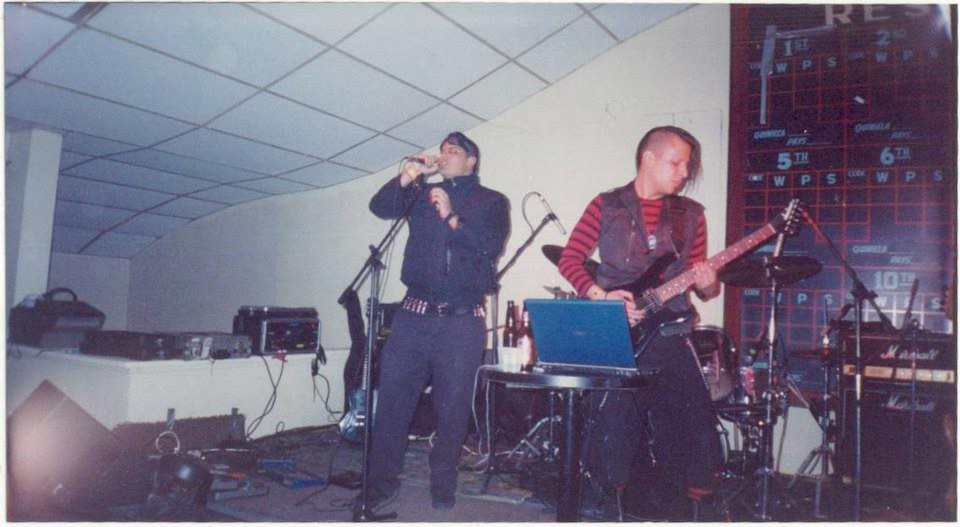
Adalbert: Well, such songs as “Disgraced” or “Night terrors” are definitely dark electro clubhits, taking what’s best from the tradition of the genre, but there are also such experimental tracks like “Hateful apparatus” which mix tribal elements with rhythmic noise and… rock elements (guitar solo!). How are you able to join all these elements?
Fako: “Hateful Apparatus” is my favourite song from the album. The lyrics of the song tell several stories at once of how religion has affected evolution through all these years.
The musical elements I combined for this track follow the harshness of the style of the album “Computer Hate” with a distorted Darbuka line drawing a prehispanic feel to it, as the story progresses it becomes noise percussion, I added staccato chunky basslines in the style of “Mutación de Generos”, and a synthetizer solo run through guitar distortion in a similar style to “Robocorpse” synth solos to make the resolution of the song.
Adalbert: There are also some more atmospheric elements – “gothic” organs and chants in “Disgraced” or “Gris” – Exemia, as for me is about intensive brutality, but this “dark” element is also important. Would you agree with me?
Fako: Yes, there is no doubt that there must be a balance between the decoration of a song with darkness and the brutality of the bass and drums to make this kind of music.
The second one is very important on this style because it captures the listeners attention, yet the main objective behind Exemia is not only to reach the ears of the listener but to make them feel the music making them want to dance or headbang, triggering their pilomotor reflex or just to get them through their day with different genres for each mood and state of mind.
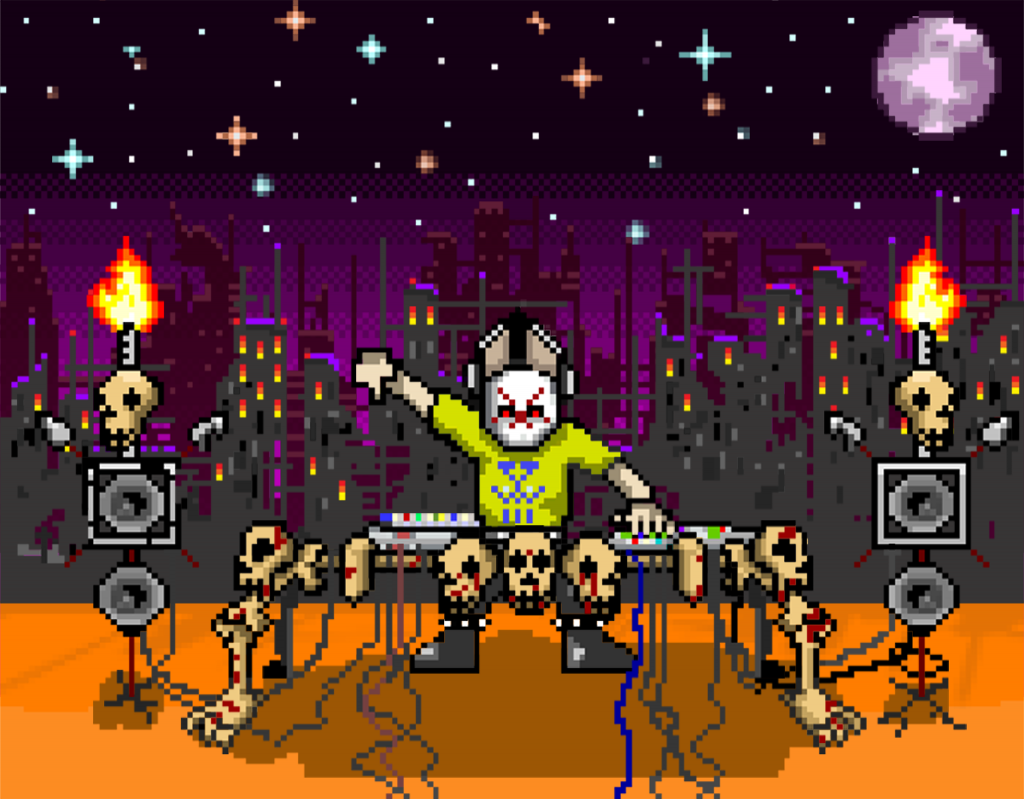
Adalbert: “Cryptobiosis” – as it was described in our review – has some big variety of ideas on it. Each song is filled with surprises and I wonder is it caused by your rich musical experience – for example Robocorpse album was full of references to synth sound of 80s while previous efforts were more hardcore-techno oriented. And “Cryptobiosis” mixes those two – brutality with decent melodies. Was it your goal?
Fako: That is correct, my goal for ‘Cryptobiosis’ was to mix the harshness of the drums of the past rhythmic noise album with the melodic style of some old Exemia industrial songs and the one I developed during the ‘Dark-Rearrangements’ trilogy, but this time going back to adding vocals and changing the structure of the songs so they would have a chorus too.
Adalbert: Well, at the first listen of “Cryptobiosis” I was really impressed, that it’s so loaded with emotions – mostly anger. Where did you found so many frustrations?
Fako: The lyrics of this album are written mostly about the political, religious lies, negligence and the social negative reactions of the ones we trusted. Except ‘Gris’ which is written in memory of a loved one.
Adalbert: On “Cryptobiosis” you’ve done some very good work with vocals, which are very diversified: from clean vocs in “Gris”, trough distorted, high tone vocals typical for dark electro (“Nighterrors”), but the whole record is dominated by deeper growls which remind me of grind core or death metal. What were your inspiration while arranging vocals?
When I was younger, I listened to punk and metal and later to gothic rock and industrial thanks to the internet. I would try to imitate those kinds of vocals, and throughout the time I played with local bands I developed my own guttural voice for Exemia.
Here Fako posted links to his inspirations while working on voice which are… Jon Nödtveidt’s performance in Dissection and Mikael Åkerfeldt’s performance in Bloodbath.
[halobox111]
Adalbert: Talking about inspirations – what are they? In “Disgraced” I hear a little bit of Velvet Acid Christ – like bassline, but apart from this specific band it’s difficult for me to point out any specific projects that are important for you…
Fako: Besides collaborating with industrial projects being my main inspiration, one of the biggest influences in my basslines and structure has been Psytrance and Goatrance music.
“Disgraced” was created in 2005, but never released. That may be the reason why it holds a familiar EBM sound. Ten years later, I was not sure about remaking “Disgraced”.
Have you ever sang or hummed an instrument line before you were intending to write it down so you didn’t forget it? This was the case on the background melodies on this one, but I thought it would be interesting to record them as chants instead of using a synth pad and layered them down so it would sound like a church choir, added some organ, once I heard the flow I became satisfied with the results.
I could write a huge list of some of the electronic or industrial bands that inspired me before Exemia existed, but just to name a few: Aphex Twin, Squarepusher, Ministry, Nitzer Ebb, Skinny Puppy, VAC, Dulce Líquido, Laibach, God Module, NIN, Mono no Aware, FLA, Suicide Commando, Funker Vogt, :Wumpscut:…
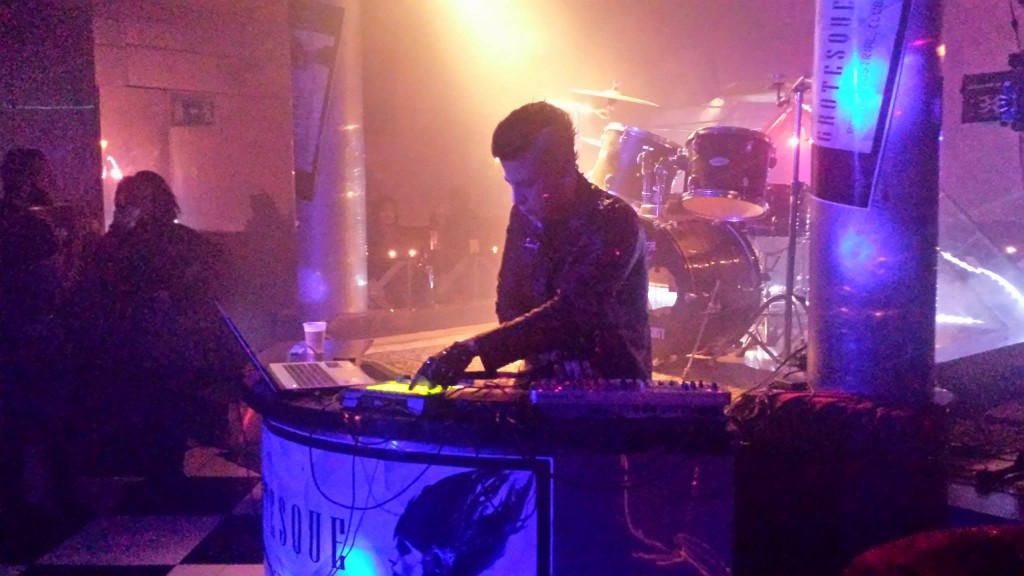
Adalbert: And I’m definitely convinced that you’re inspired not only by electronic music. On latest Orbicide mini-album we hear your “metal” reinterpretation of “Dichtomy Divine” – and while listening to Exemia… well, sometimes metal comes to my mind, so I would ask do you listen to metal bands.
Fako: Yes, Absolutely! Metal is one of the genres that has been a big influence in my life, and it’s mostly the music I grew up with, I think it is awesome that some friends still have their metal bands active, I still love to listen to it and attend to local gigs when possible.
[halobox119]
Adalbert: I saw that Exemia is not only a studio projects, and you’re also playing the concerts. Do you like to perform live?
Fako: I love to! It is one of the best feelings to be on the stage! Here Fako posted link to Exemia live at Long Beach, California video.
Adalbert: Let’s talk about lyrics. They are definitely about something, and the subject which repeats is the frustration towards society and government (like “Devolved state”). What is your attitude towards society and state?
Fako: I consider myself a man of few words, and I find it easy for me to convey feelings and opinions through my music. The lyrics content comes from the reality we live in and the news, information on the internet about hate crimes, media manipulation, religion mishandling, abuse of authority, war and injustice.
Adalbert: And what is “Cryptobiosis”? I know it’s a biological term which describes a process in which organism stops its metabolic functions because of abnormal external conditions (for example lack of oxygen or freezing). When the external conditions normalize, the organism can return to normal metabolism and living. But why this term is used in your song and serves as the title of the whole album?
Fako: It’s about the harm mankind do to themselves and to the other living beings, a reminder that humans are not eternal, and when someone evil dies someone worse usually shows up. It’s about detaching from these toxic humans rather than becoming like them. I chose this song to be the main theme of the album given the intensity of its nature.
Adalbert: The last questions are about your plans for the future. Can “Cryptobiosis” can be viewed as the indicator of the things that will happen in Exemia’s future?
Fako: “Cryptobiosis” is a repertoire that summarizes the post-industrial styles of Exemia since the project began. I have many releases that are coming out this year but they are very different in genres and style, some will have vocals and some of them will focus on the synthetizers instead. A few examples are:
- This is Synthform [freeform and synthwave]
- Aim&Execute – the union between Exemia and AudioCentesis [DarkElectro, Post-Industrial]
- The Remix Vault [Remixes by Exemia]
- El Llanto de una Máquina [Rhythmic Noise]
- Videogame Soundtracks and more!…
